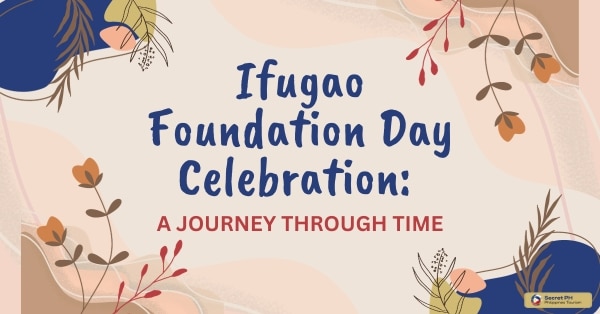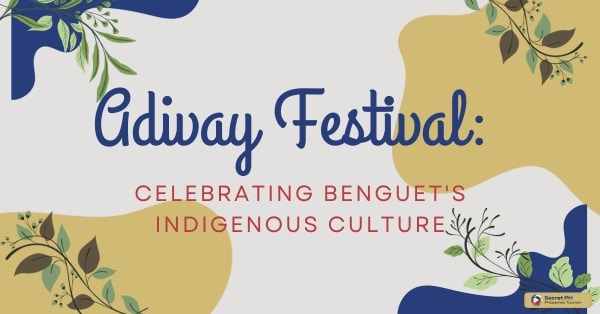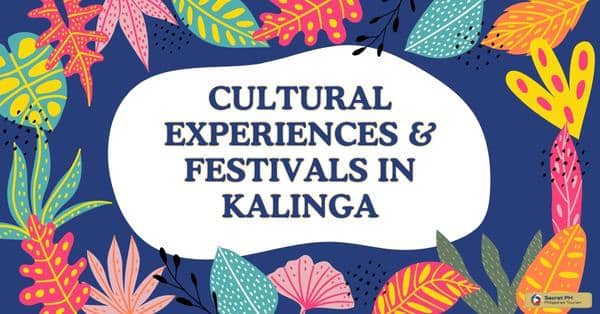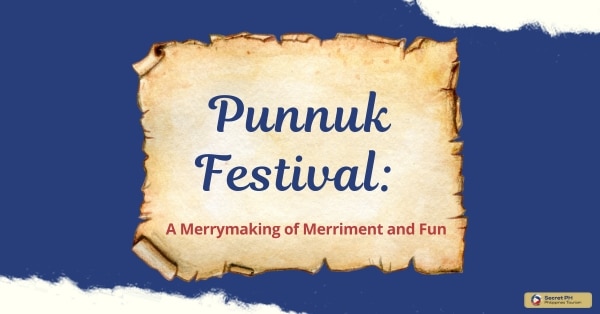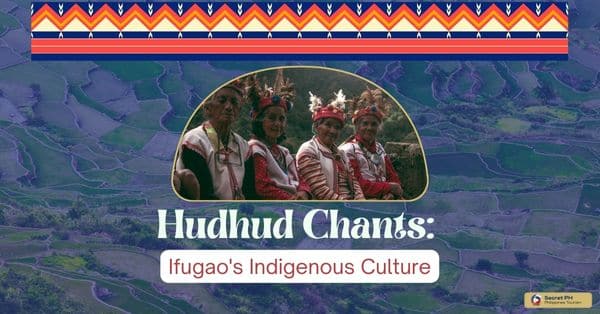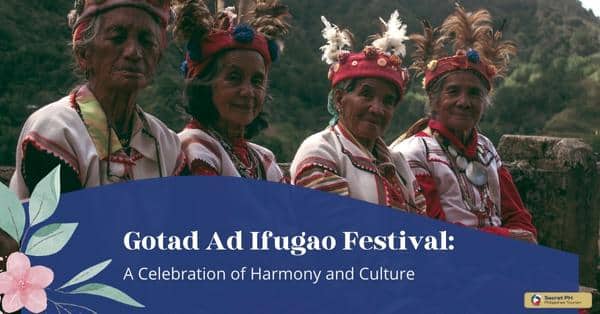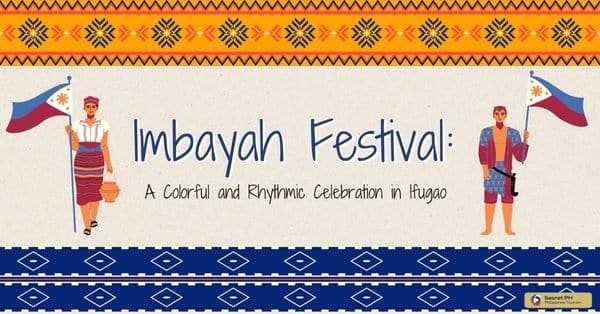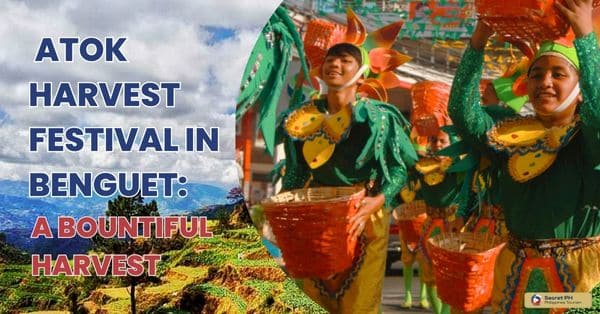The T’boli Festival in South Cotabato is a celebration of the rich cultural heritage and ancestral domain of the T’boli community. It highlights the importance of preserving their ancestral lands, traditions, and beliefs, which have been passed down from generation to generation. Ancestral domain and heritage are key elements of the festival, and efforts are being made to conserve and promote them.
In this blog post, we will explore the importance of ancestral domain and heritage at the T’boli Festival, with a focus on heritage conservation efforts, the role of the festival in preserving ancestral domain and heritage, and the challenges and opportunities for promoting these elements of culture and identity at the festival.
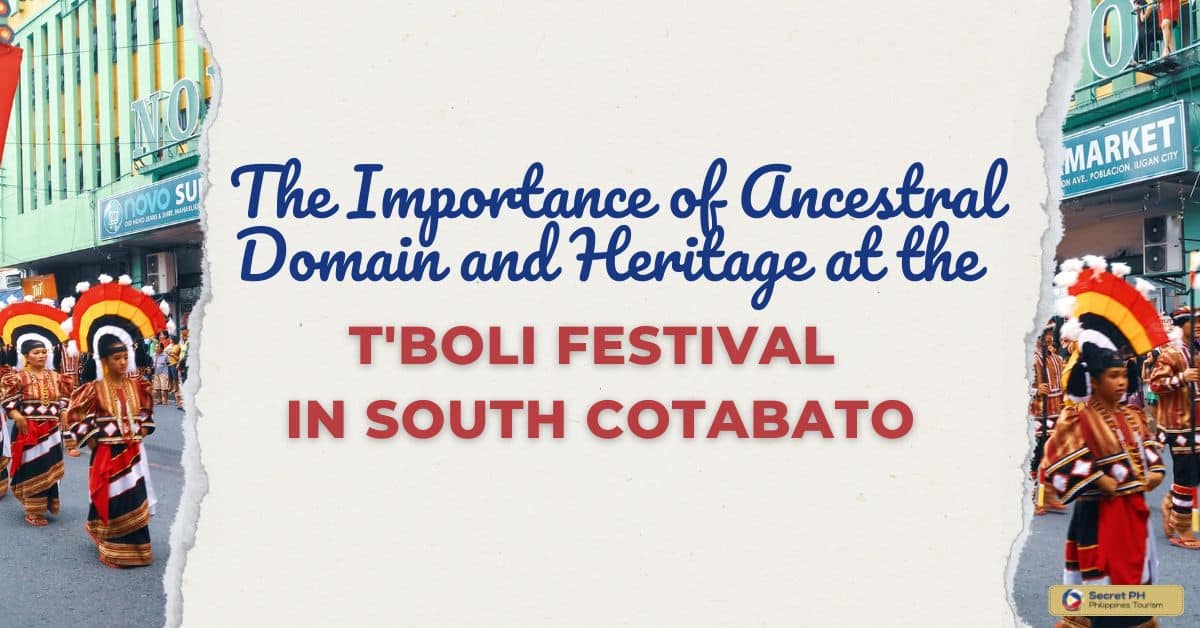
Understanding the T’Boli Festival and Its Significance
The T’boli Festival is a colorful celebration of the rich culture, heritage, and ancestral domain of the T’boli community. The festival is celebrated in honor of their ancestors, who are revered for their courage and strength throughout the generations. The festivities involve traditional songs and dances, native rituals, and spiritual offerings.
The festival provides an important opportunity for the community to come together and share their unique culture and history with others. It helps preserve cultural heritage by providing space for traditional songs, dances, and other practices to be performed. The festival also serves as an important reminder of the importance of ancestral domain and heritage protection in South Cotabato.
The community is able to recognize the significance of their shared cultural identity and work towards promoting it through conservation efforts, public events, and continued education about traditional customs and practices. The event is also a way for the T’boli people to reconnect with their roots and proudly express their identity through distinctive rituals, music, and dancing.
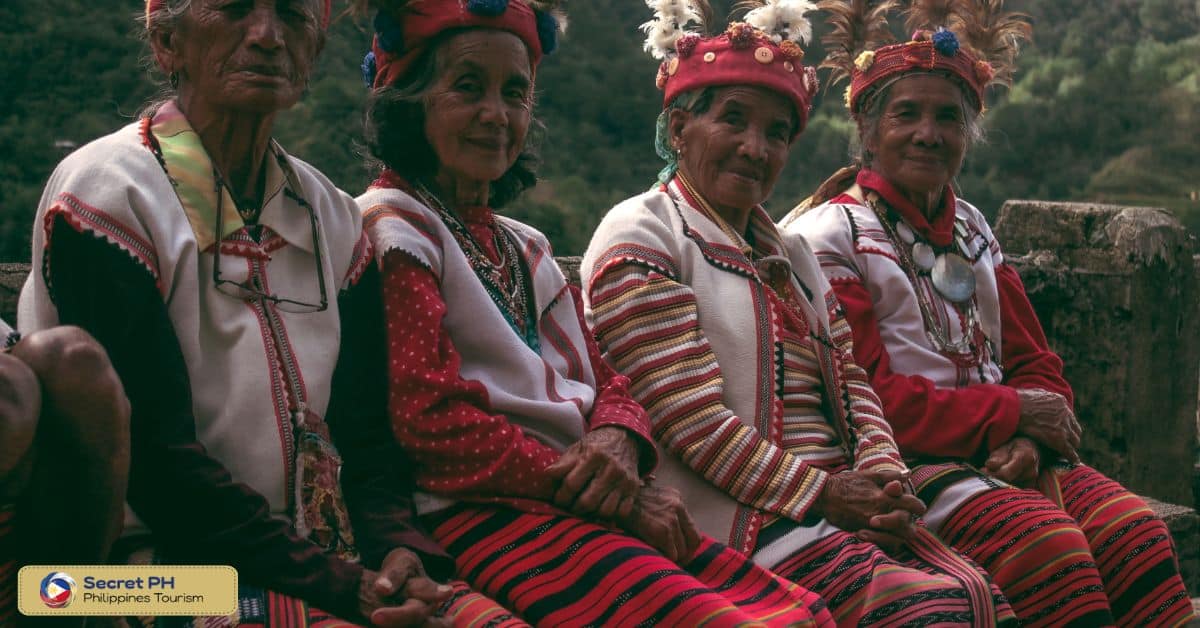
Ancestral Domain and Heritage: Key Elements of the T’Boli Festival
The T’Boli people inhabit the highlands of South Cotabato, Mindanao in the Philippines. They maintain their unique customs, traditions, and beliefs that they have been practicing for centuries.
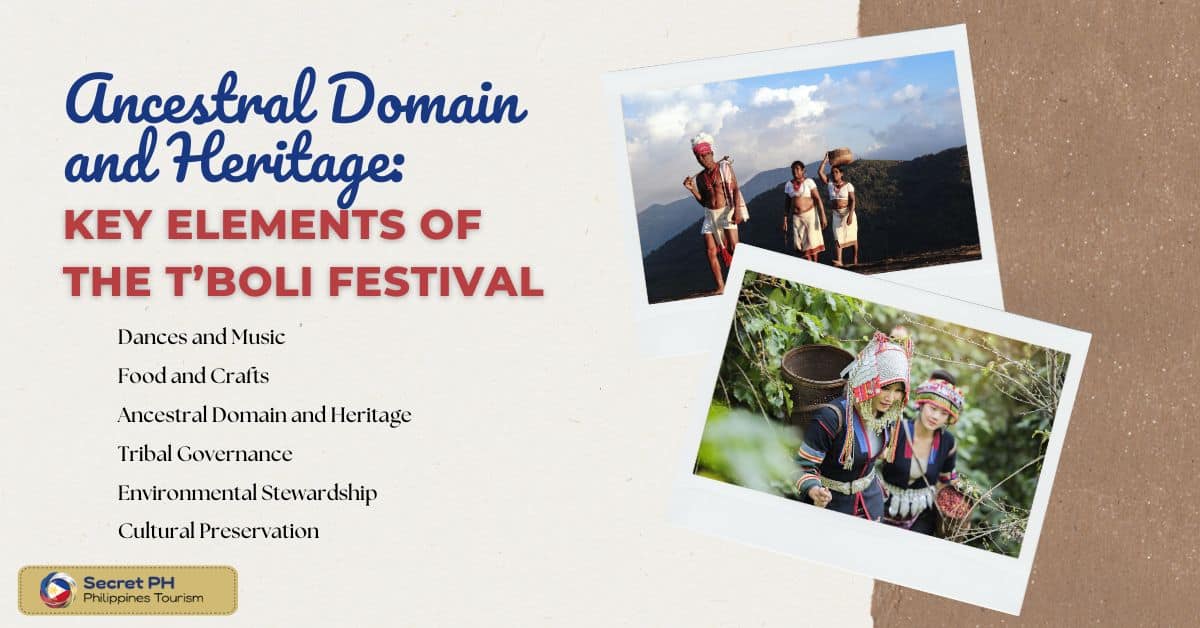
Dances and Music
The festival showcases the traditional dances and music of the T’Boli people. The dances are performed by men and women dressed in colorful and intricate costumes that represent different aspects of T’Boli culture. The music is played using traditional instruments such as the hegalong, a two-stringed instrument, and the kubing, a bamboo mouth harp.
Food and Crafts
The festival also features T’Boli cuisine and handicrafts. The food offerings include traditional dishes such as kinuday, smoked meat, and hinabol, a type of woven fabric made from abaca fibers. The handicrafts showcase the intricate and colorful designs of T’Boli textiles, such as the t’nalak.
Ancestral Domain and Heritage
The T’Boli Festival is not only a celebration of the T’Boli people’s culture, but it is also a reminder of their ancestral domain and heritage. They have a deep connection to their ancestral land, which they consider sacred.
Tribal Governance
The T’Boli people have their own form of governance that is based on their customs and traditions. They have a council of elders, who are responsible for making decisions that affect the community. They also have a system of justice, which is guided by their customary laws.
Environmental Stewardship
The T’Boli people believe that their ancestral land is a gift from their ancestors, and it is their responsibility to take care of it. They practice sustainable agricultural methods and are careful not to harm the environment.
Cultural Preservation
The T’Boli people also prioritize the preservation of their culture and traditions. They pass on their knowledge and skills through storytelling, music, and dance. They also continue to practice their customary laws and beliefs, which have been handed down from generation to generation.
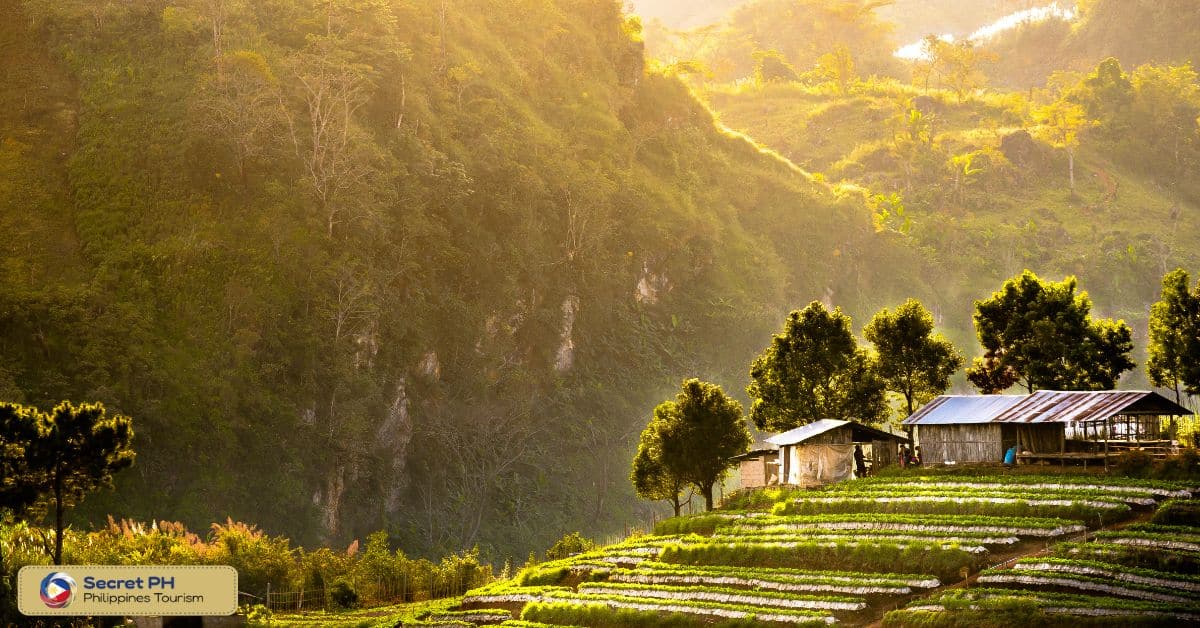
Importance of Ancestral Domain in T’Boli Culture
The ancestral domain is an integral part of the T’boli culture and identity. It is a reminder of their history, connection to the land, and way of life. The T’boli people revere their ancestral lands as sacred and view it as their duty to protect them for future generations.
The T’boli people also recognize their ancestral domain as a source of livelihood and sustenance. They strive to maintain a balance between their traditional practices and modern development, ensuring that their ancestral lands remain intact while still allowing for progress.
By protecting their ancestral domain, the T’boli people ensure that they remain connected to their culture and roots. The preservation of this aspect of their identity is essential for the future of their community.
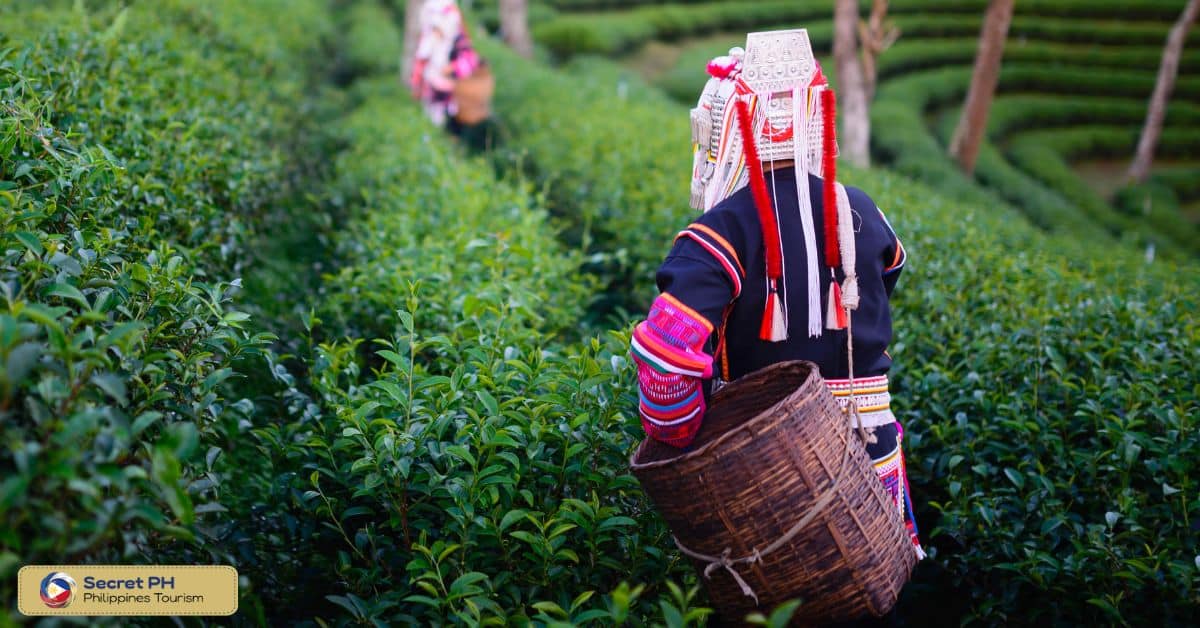
Heritage Conservation Efforts in the T’Boli Community
Along with their traditions and customs, the T’Boli community also has a unique set of practices to preserve their cultural heritage. Here, we will delve into the heritage conservation efforts in the T’Boli community, exploring the various ways they’re preserving their cultural heritage.
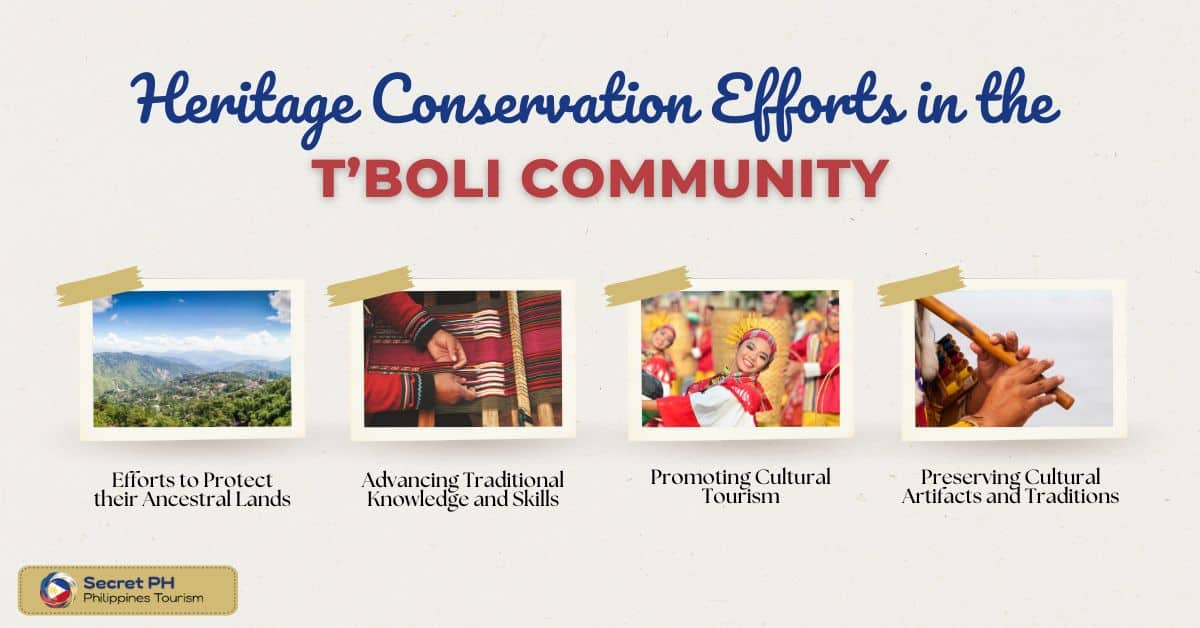
Efforts to Protect their Ancestral Lands
The T’Boli community believes that their culture, traditions, and identity are closely tied to their environment. They have made concerted efforts to protect their ancestral lands from threats such as mining, logging, and encroachment.
Their fight to protect their lands from the encroachment of commercial interests has been long and difficult, but the T’Boli community’s unwavering commitment has helped them make progress.
Advancing Traditional Knowledge and Skills
To preserve these skills, the community has established local learning centers to teach the younger generation traditional weaving skills, music, and dances. This has enabled the T’Boli people to continue to pass on these skills to future generations, ensuring that their cultural heritage remains vibrant and alive.
Promoting Cultural Tourism
Cultural tourism has played a vital role in preserving the T’Boli community’s cultural heritage. By promoting cultural tourism, the T’Boli community has found a way to share their traditions and way of life with the world, and at the same time, generate income to support their community.
The community has developed several tourist sites where visitors can observe and participate in traditional music and dance performances, taste local cuisine, and learn about traditional T’Boli customs.
Preserving Cultural Artifacts and Traditions
The T’Boli community’s cultural heritage is also evident in their artifacts, such as traditional clothing, ornaments, and musical instruments. The community has established various efforts to preserve these artifacts and traditions.
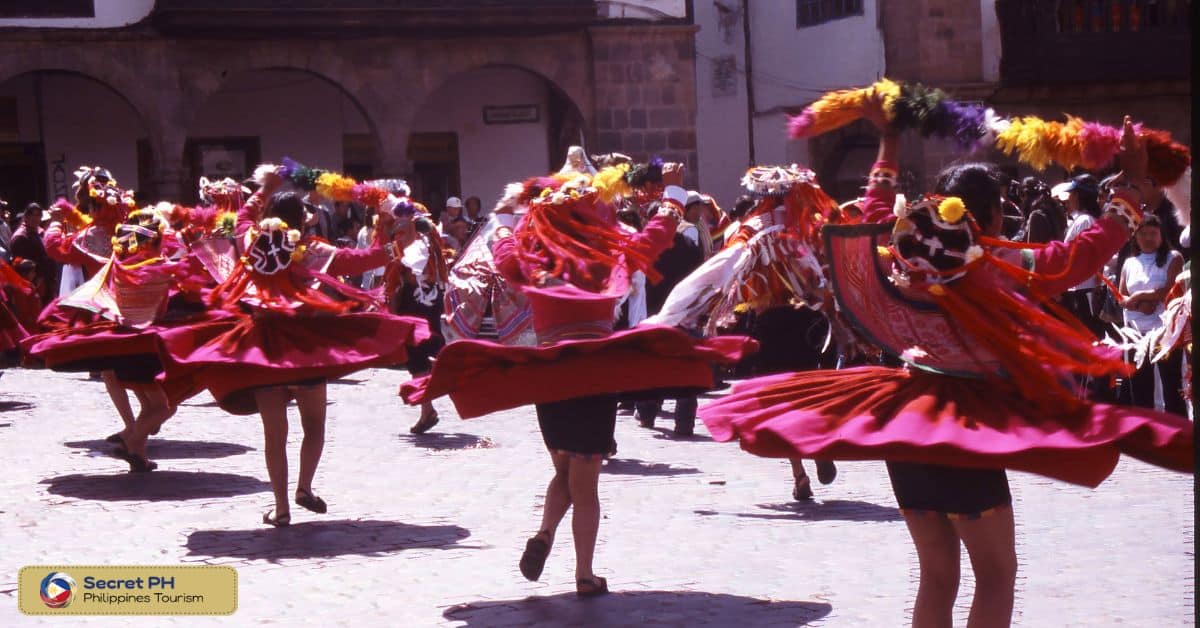
The Role of the T’Boli Festival in Preserving Ancestral Domain and Heritage
The T’boli Festival is an important event for preserving and promoting the ancestral domain and heritage of the T’boli people. Through this festival, the community demonstrates its respect for its history, culture, and traditions.
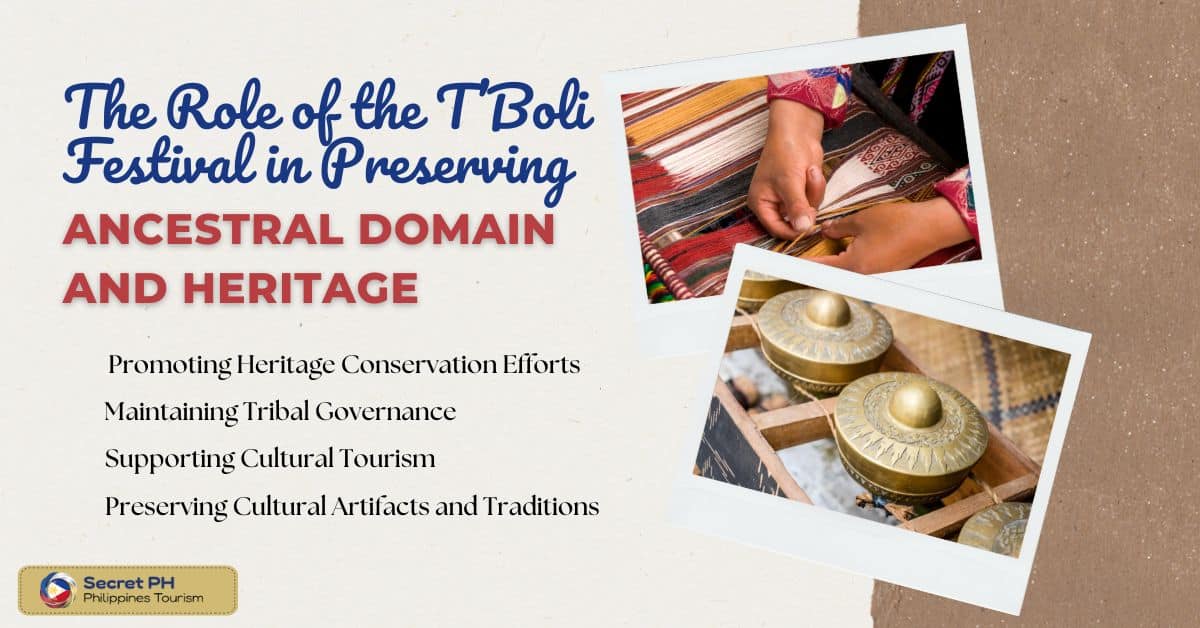
1. Promoting Heritage Conservation Efforts– The festival serves as an opportunity for the community to raise awareness about the importance of heritage conservation and take action to protect their traditions and customs.
2. Maintaining Tribal Governance– The festival serves as a reminder of the importance of tribal governance and the community’s commitment to their customs and beliefs.
3. Supporting Cultural Tourism– The festival serves as an important platform for the T’Boli people to promote their culture and attract tourists, which in turn can help generate income for the community.
4. Preserving Cultural Artifacts and Traditions– By showcasing traditional artifacts and practices at the festival, the T’Boli people are able to preserve and promote their cultural heritage.
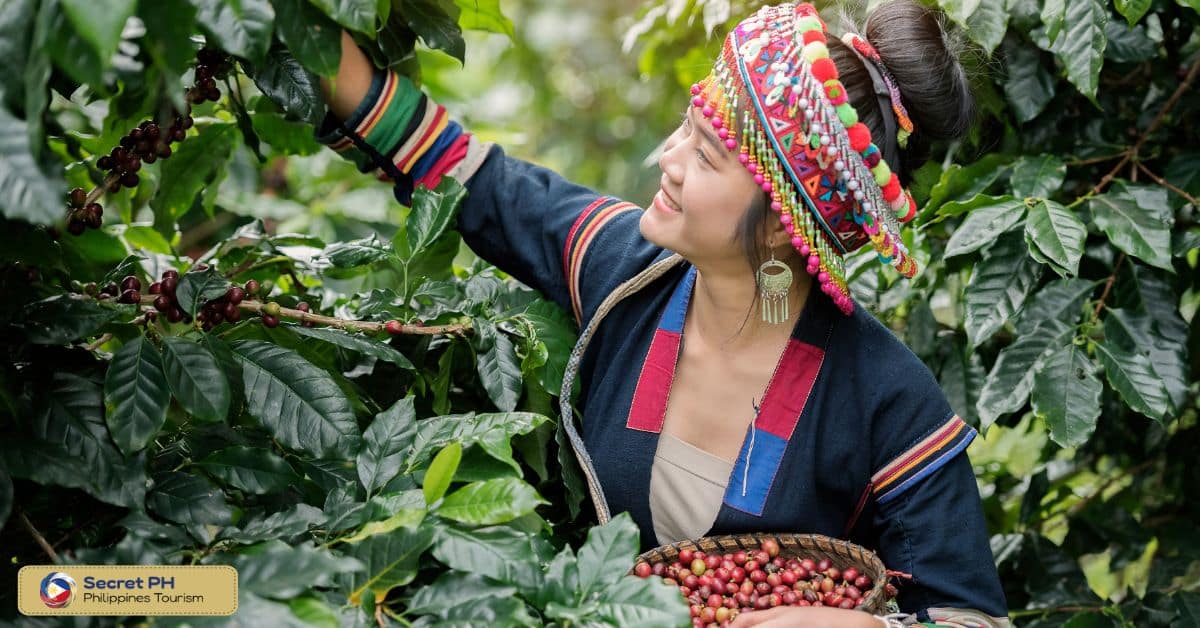
In conclusion
The T’boli Festival is an important event for preserving and promoting ancestral domain and heritage in South Cotabato. The community celebrates its culture, reconnects with its ancestral land, and takes pride in its unique customs and traditions. It also serves as an opportunity to raise awareness about the importance of protecting ancestral domain and heritage.
The T’boli people face many challenges in preserving their ancestral domain and heritage. But the festival provides an important platform for them to come together. They celebrate their culture, identity, and spirit of resilience.

